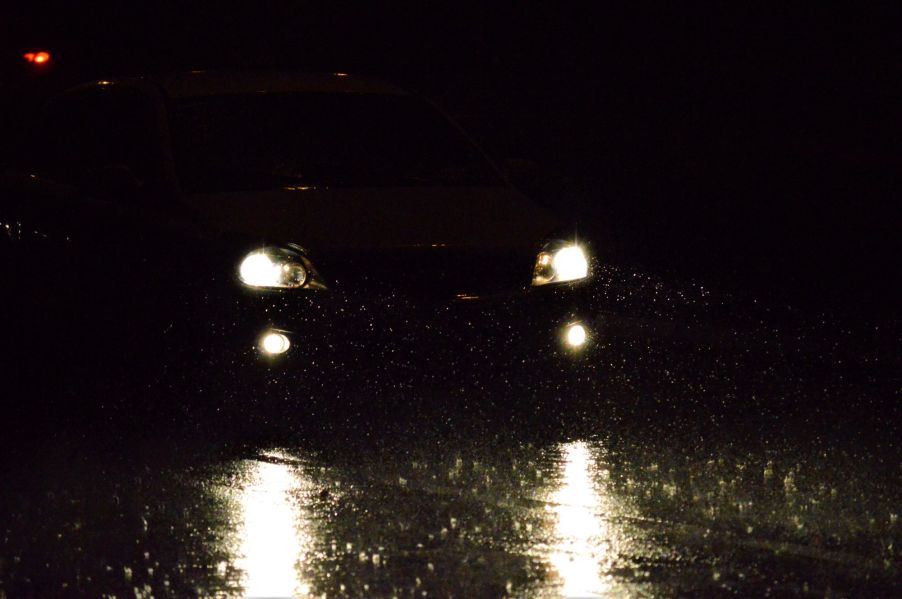
Is It Legal to Use Your High Beams on the Highway?
Although all drivers have been through driver’s education and taken the driving test to get their license, there are some aspects to car safety that aren’t always taught or made clear in the classes. Common questions about driving that arise even among seasoned drivers often have to do with high beams. Learn more about whether you can use high beams on the highway, situations where you shouldn’t use them, and whether using high beams can ever create unsafe situations.
Using high beams on the highway

High beams help illuminate the environment allowing you to see better while driving at night. High beams are great for allowing you to see which way the road curves up ahead, upcoming street signs, and even animals that may suddenly cross your path. For these reasons, some people think it’s good to drive with their high beams on at night.
High beams are meant to be used at night on roads where there aren’t cars in front of you or coming your way. This often includes interstate highways and country roads when there is little to no traffic. NSC reports that high beams truly can make high-speed driving safer by increasing your field of vision at night. However, be sure to dim your lights when you are in the presence of other vehicles or certain weather conditions.
When not to use them
Whenever you are within 500 feet of another vehicle, whether it’s oncoming traffic or you are approaching it from behind, you should return to standard headlights every time. This prevents your high beams from blinding other drivers and making it more difficult for you to see what is directly in front of you. Meanwhile, if you are ever driving along a road or highway and an oncoming person or person behind you has their brights on, making it hard for you to see, focus your vision on the right shoulder of the road and slow down to stay safe.
Dimming your lights at these times isn’t just for safety purposes, either. According to Car and Driver, it’s actually illegal to have your high beams on within 500 feet of traffic, though there are some exceptions. C/D also reports that some states allow drivers to flash their lights if another car either doesn’t have their lights on or their brights are on, making it hard for you to see.
Flashing one’s lights has been deemed a right due to free speech in Florida, but it’s a very generalized gesture that can confuse other drivers as to what you are trying to tell them. In other states, you can get pulled over for flashing your lights at another car or having your high beams on when you shouldn’t, resulting in a hefty fine.
Can using high beams ever make driving less safe?
Yes, definitely. Using high beams in proximity to other cars can be dangerous by negatively affecting your and other drivers’ vision. Additionally, they can also make driving in stormy, wintery, or foggy weather more dangerous. Low beams, sometimes referred to as fog lights, are better suited for these conditions, as they shine downward and help you see the lines on the road and objects that are directly in front of you, rather than those off in the distance.
Using your high beams in poor weather can make it harder for you to see than if you didn’t have lights on at all. Driving Tests says this is because the intense light from your high beams reflects off of fog, snowflakes, and raindrops, and these objects reflect the light to you. This reduces the visibility down the road, making you more likely to get into an accident or drive off the road.
When in doubt, save your high beams for nights where you aren’t around other cars. Otherwise, rely on your regular lights and fog lights in most other situations.


